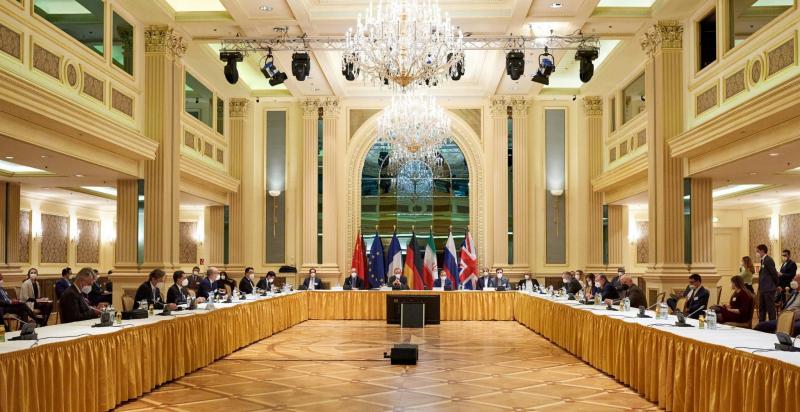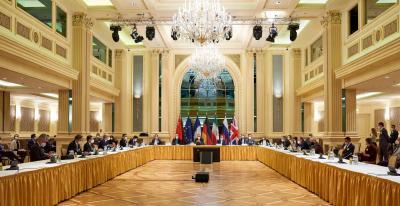A senior U.S. official reported on Wednesday that the United States has informed Iran about the details concerning the sanctions it is prepared to lift as part of a return to the nuclear agreement. Both the U.S. and Iran have entered their second break from indirect talks in Vienna aimed at reviving the nuclear deal following the withdrawal of former President Donald Trump.
The U.S. official discussed the recent talks led by the European Union, stating, "This time we entered into more details." He added, "We provided Iran with a number of examples regarding the types of sanctions that we believe we will need to lift to return to compliance, as well as sanctions we believe we will not need to lift." The official noted that the U.S. also addressed a third category described as "difficult cases," where Trump reimposed sanctions unrelated to nuclear activities, imposed purely "to prevent" Biden from returning to the agreement.
Iran has pressured Washington to lift all sanctions imposed during Trump's presidency in exchange for returning to its commitments under the 2015 agreement. The U.S. official indicated that the United States and Iran have not yet delved into details regarding who should initiate actions first. However, he added, "We are open to various types of sequencing mechanisms that align with our interests... with a view toward full compliance from both sides."
The official declined to confirm a report from the Wall Street Journal regarding the Biden administration's readiness to ease sanctions imposed on Iran's financial and oil sectors. Iranian President Hassan Rouhani had earlier expressed optimism, stating that negotiations had achieved "progress of 60 to 70 percent."
With Iran refusing direct negotiations with the United States, European officials are mediating between the two sides. Diplomats from Britain, China, France, Germany, Iran, and Russia are holding meetings at a luxury hotel in Vienna, while U.S. diplomats are participating indirectly from a nearby hotel. An European diplomat stated, "We have made progress, but much work remains to be done." He added, "We urge all parties to seize the diplomatic opportunity before them. We condemn actions that any party may take that could lead to escalation or jeopardize the progress made."
Negotiators have been gathering in Vienna since the beginning of April in an attempt to salvage the agreement, and discussions are expected to resume early next week after a hiatus to allow delegations to discuss developments with their respective countries. There is a sense of urgency as the Islamic Republic has begun producing uranium enriched to 60 percent, bringing it closer to the 90 percent level required for military use. U.S. President Joe Biden affirmed that Iran’s production of 60 percent enriched uranium is a further breach of its commitments under the agreement, which does not assist in breaking the deadlock.
Iran insists that its decision was a "response" to "nuclear terrorism" following an explosion at the Natanz enrichment facility, which it attributes to Israel. It is now crucial to agree on which sanctions Washington will lift, a key sticking point in the negotiations, and how Iranians will return to fully respecting their commitments outlined in the agreement.




